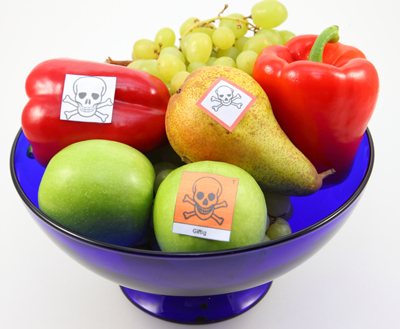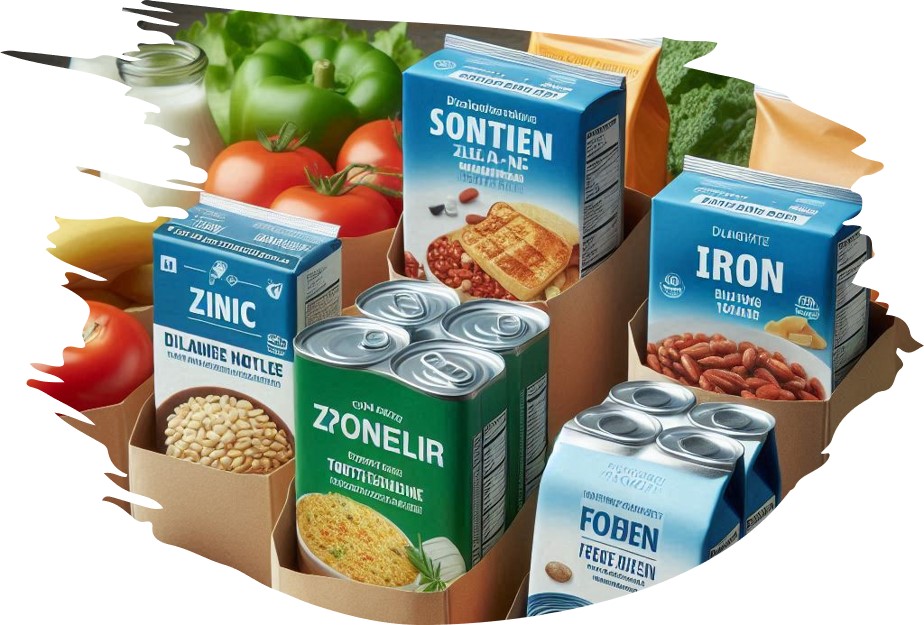The Benefits of Eating
Organic Foods Go Beyond Nutrition
 Generated with Copilot
Generated with CopilotHave you ever wondered if the benefits of eating organic food are worth the extra cost?
With more people becoming health-conscious and environmentally aware, the conversation around organic foods is growing louder. Let's explore why preferring organic foods might be one of the best decisions for your health and your family.
Why organic foods?
Organic food is often puffed for its higher nutrient levels and lower pesticide residues than conventionally grown foods. Some studies suggest that organic produce may contain more vitamins, minerals, and antioxidants. For instance, organic strawberries and milk have been found to have higher levels of vitamin C, antioxidants, and omega-3 fatty acids.
But is that all?
The absence of synthetic hormones and antibiotics in organic farming also adds to its benefits. By avoiding synthetic pesticides and fertilizers, organic foods can help reduce the risk of developmental disorders, hormone disruptions, and certain cancers linked to these chemicals.
How Pesticides Enter Our Bodies?

There are many ways. If you pass by a field sprayed just earlier, the topmost is from the air. It can cause even death. Last year, I lost my close friend as he entered a morning field of cotton without taking precautions. After a couple of hours, he fainted and could not survive in the emergency of the local district hospital.
But suppose you live in cities and don't pass by such fields. In that case, you will still likely intake pesticide residues regularly, often daily. Our liver works hard to break down these chemicals but doesn't always succeed. Over time, these substances accumulate in different parts of our bodies, particularly the liver and kidneys.
A recent study found 16 pesticides and chemicals in the bodies of all participants. Conventional farmers are often exposed to more than 40 different pesticides, including the infamous glyphosate, organophosphates, and more. Glyphosate, in particular, has been linked to various health issues like kidney disease, shortened pregnancy, and endocrine disruption.
It has also been observed that most of the conventional farmers are being exposed to more than 40 different pesticides, including Glyphosate, organophosphates, pyrethroids, the neonicotinoid clothianidin, and the phenoxy herbicide 2,4-D.
Kendra Klein and Anna Lappé write:
“Research has linked Glyphosate to high rates of kidney disease in farming communities and to shortened pregnancy in a cohort of women in the midwest. Animal studies and bioassays link it to endocrine disruption, DNA damage, decreased sperm function, disruption of the gut microbiome, and fatty liver disease.”
Organic Food Can Reduce Pesticides
Until recently, we were not sure how to get rid of pesticide chemicals accumulations from our bodies. There were pharmaceutical or natural antioxidants to do the job. However, this study https://foe.org/the-study/ helps us to understand the real impact of organic not only as a food but also as a cure against these accumulated substances. It proves that shifting towards organic food from the conventional one can help us to remove 40% to 70% of different chemicals from our bodies.
Another study also demonstrates that eating organic food can significantly reduce urinary levels of Glyphosate as well as AMPA, dropping to the baseline within three days.
Shifting to organic food can significantly reduce the pesticide burden in our bodies. Kendra Klein and Anna Lappé reported that switching from conventional foods to organic can help eliminate 16 pesticides, reducing glyphosate by 70% within six days. Another study showed that eating organic food could lower glyphosate and AMPA urinary levels, bringing them down to baseline within three days.
The Hidden Dangers of Conventional
Food
Many of us are aware that conventional produce can carry pesticide residues. Glyphosate, a common herbicide, has been flagged by the U.S. Environmental Protection Agency (EPA) as a potential carcinogen since 1983. However, its use has continued, with detectable levels increasing alarmingly. The World Health Organization has also listed glyphosate as a probable human carcinogen, linking it to cancer, congenital disabilities, and other health issues.
Economic and Social Considerations
Organic farming has seen significant growth, especially in the European Union. Organic farms, while generally producing lower yields, are often more profitable and contribute positively to biodiversity. More than 70% of Americans purchase organic food, indicating a solid market demand.
Criticisms and Controversies
 Generated with Gemini
Generated with GeminiDespite some documented benefits of eating organic foods, some controversies are part of the conversation.
First, organic foods can be up to 47% more expensive than conventional ones. The increased cost is due to greater labor input, smaller-scale production, and higher post-harvest handling and shipping costs. Naturally, the farmers have to recover this cost, which results in a higher price tag with the organic labeled foods on the shelves. It is a valid objection, so only well-off customers can purchase organic foods and pay the premium for the perceived health benefits and reduced pesticide exposure.
Second, organic foods are still in limited availability. Some conventional agriculturists argue that if every field in the world is shifted to organic foods, it can't meet the demand of the increasing population, especially in developing countries like Pakistan. However, I have observed many experiments in government experimental farms and with futuristic farmers to harvest much better yields with organic cultivation and pest management methods.
Third, some studies show that organic foods' nutritional benefits are insignificant. The critics argue that organic foods may take years to help you to help you by providing these vitamins and nutrients. They also say that these benefits can be achieved quickly through the availability of vitamins and energy drinks at medical stores.
Beyond Health Benefits: The Bigger
Picture
Choosing organic foods isn't just about personal health. Organic farming practices promote biodiversity, protect the environment, and support sustainable agriculture. By choosing organic, you're supporting a movement towards a healthier planet for future generations.
In conclusion, while there are cons to eating organic food, such as higher costs and limited availability, its benefits—ranging from better health outcomes to environmental sustainability—make it a worthwhile consideration. As more people become aware of these benefits, the demand for organic foods continues to rise. So, consider preferring organic options next time at the grocery store.
Your body and the planet will thank you.
Difference Between Organic and Natural
Are organic foods more nutritious?
Share Your Interesting Story
Everyone has an opinion on organic food. You may have a unique story. You are requested to share your views/story regarding organic foods. We encourage you to disclose your name, location credentials while sharing your point of view.
- Home
- Organic Food
- Eating Organic Food
What's New?
-
What are iron fortified foods?
Iron fortified foods contain additional iron to help prevent deficiencies and support overall health, particularly in children and pregnant women. -
What are fortified foods?
What are fortified foods? How are they different from staple and common everyday foods? -
Baby Organic Food: “To be, or not to be, that is the question”
Baby organic food is free from insecticides, weedicides and residues of synthetic fertilizers thus much safer for babies

DOWNLOAD!



